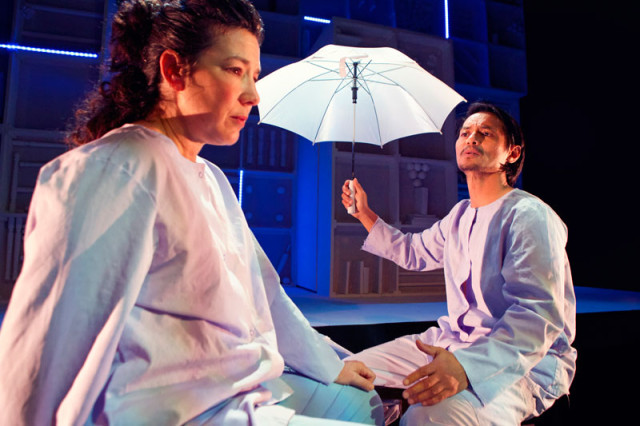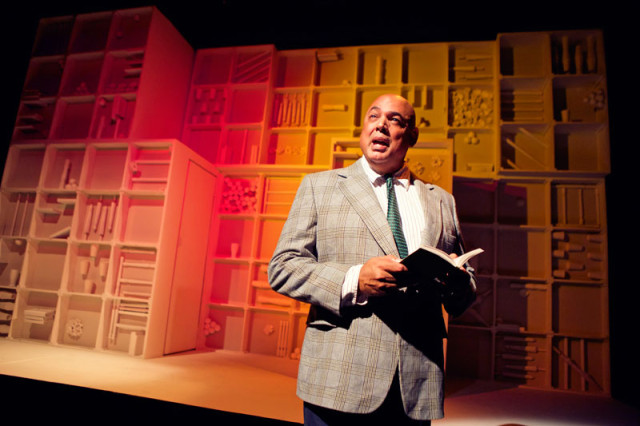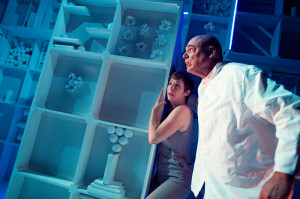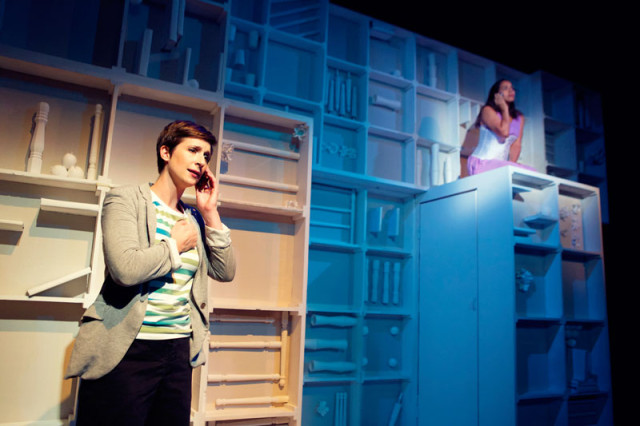Local playwright Christopher Chen’s last work with San Francisco’s Crowded Fire Theater was The Hundred Flowers Project in 2012, a truly remarkable play about a theatrical troupe collaboratively creating a postmodern play about Chairman Mao that takes on a life of its own until the creators can no longer tell real life from the all-consuming play.
Chen’s latest at Crowded Fire, The Late Wedding, is similarly heady and meta-fictional. This one’s inspired by the writings of Italian fabulist Italo Calvino, particularly his novel Invisible Cities, a collection of visions of fantastical cities that often act as allegories to explore philosophical themes. Chen substitutes marriages for cities, depicting an anthropologist exploring the marital customs of various fictional tribes.

A couple in one tribe (Michael Anthony Torres and Lawrence Radecker) spends all their time reminiscing, panicking a little whenever they have trouble reaching consensus on a minor detail of their shared memory. Another tribe believes in prolonging the anticipation of marriage to the point where long-distance relationships are the norm, as heartbreakingly depicted by Kathryn Zdan and Lauren Spencer. Yet another tribe believes that life is death and thus practices detachment in relationships, and Michele Leavy and Ogie Zulueta are hilarious in attempting to present a united front of serenity while squabbling over details as if no more enlightened than anybody else. The marriages are presented without regard to gender; more of them are same-sex than opposite-sex, but that aspect isn’t commented upon, just allowed to speak for itself.
Calvino’s novel If on a Winter Night a Traveler is also an explicit influence. Much of that novel was a second-person account of the reader’s experience of reading the book, and the play begins in a similar way, with Zdan’s pre-show turn-off-your-phones speech morphing into her telling us what we’re thinking, including what we’re thinking about her telling us what we’re thinking.

Artistic director Marissa Wolf’s deft staging fully embraces and accentuates the weirdness of Chen’s assemblage of fragmenting vignettes. The terrific six-person cast continually morphs from one role to another, with some roles echoing others with similar interactions or snippets of repeated language. According to the press release, the play is designed for anywhere from three to 16 actors, so it could be that those resonances are in part due to an element of chance in which roles happen to be sharing one actor’s face.



